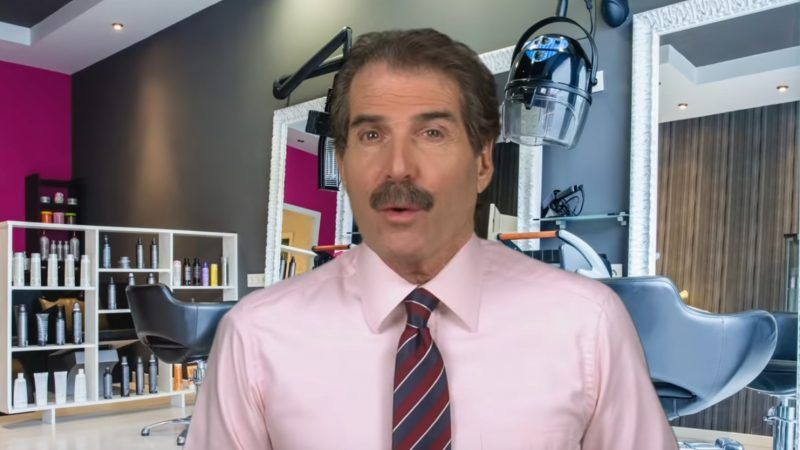Occupational Licensing Hurts the Little Guy
People who want to work should be allowed to work.

People who want to work should be allowed to work. That includes people who once went to jail.
With President Donald Trump's support, Congress spends your money giving ex-cons "employment assistance."
Why bother? State laws often make such employment impossible.
Courtney Haveman had an alcohol problem. When she was 19, she got a DUI. Then she took a swing at a security guard. "I made dumb decisions," she admits in my new video. "Served three days in jail."
Eight years later, and now sober, Courtney enrolled in beauty school. Such schools invite applicants to "turn your interest in beauty into a rewarding career."
The schools do provide good careers—to owners of cosmetology schools. In Pennsylvania, where Courtney applied, they typically charge $6,000 tuition and require 1,000 hours of courses.
All that training is required by the state to work.
Courtney had worked in a salon and wanted to do more. Unfortunately, "doing more" requires not just serving customers well, but getting permission from bureaucrats.
Byzantine state laws demand you get a state-approved license before you may become a hairdresser, tour guide, travel agent, house painter, and all sorts of other jobs where customer happiness should be the guide.
So after taking hundreds of hours of cosmetology courses, Courtney paid more to apply for a Pennsylvania cosmetology license.
Pennsylvania then told her she couldn't do cosmetology there because she has a criminal record.
The bureaucrats said she could appeal. She could prove she has good moral character.
"I sent letters, and people in my 12-step program wrote letters on my behalf, character letters," she says.
The result?
"They sent me a rejection letter that said, 'Sorry. You lack the good moral character requirement'," says Courtney. "One time in my life that I felt like a productive member of society, I was proud of myself…people were proud of me, and then it was just like, you're not good enough still."
This is wrong.
Courtney did her time—all three days of it. She should be allowed the "second chance" that politicians keep promising former prisoners. Her arrest was eight years ago. She then got sober. Now she sponsors other women in AA. She has a toddler to support.
But Pennsylvania says, to protect "public health and safety," she may not practice cosmetology.
The rule doesn't "protect" anyone. Barbers don't have to prove they have "good moral character." Courtney is allowed to work as an "assistant."
"I'm allowed to touch clients, just not allowed to do what I went to school to do!" says Courtney.
She shampoos customers' hair and has intimate contact with them. She's just not allowed to do facials, makeup, waxing—the work she trained for. "Our government makes it extremely difficult for people like me," she says.
"People can't just be kicked out of society," says Institute for Justice lawyer Andrew Ward. He took Courtney's case for free because he believes that the cosmetology law is unconstitutional. "Everyone has a right…to pursue their own happiness…a right to engage in any of the common occupations of life."
Who benefits from restrictive licensing laws?
"It's certainly convenient," says Ward, "that established players have a law that gets to keep new people, that would compete with them, out."
Right. Cosmetology boards are dominated by people who run beauty schools. They benefit by making it hard for newcomers to compete for customers by offering better service.
The established schools and salons lobby legislators, demanding stringent "safety" requirements. It's "accidental" that they limit competition.
Courtney says, "Years of my life have been wasted." She paid to train for a job she is not allowed to do.
State licensing rules like Pennsylvania's cosmetology rule don't protect public health. They don't help customers.
They crush the little guy and limit competition.
Get rid of them.
COPYRIGHT 2020 BY JFS PRODUCTIONS INC.
DISTRIBUTED BY CREATORS.COM


Show Comments (16)